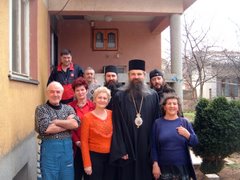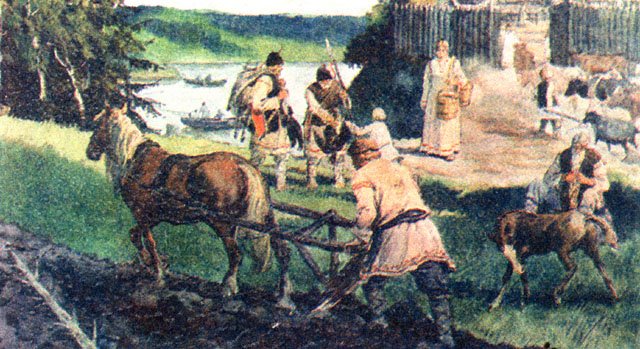Two Types of Democrats in Serbia Politics
They've got it wrong again
Henry Ford democrats accept the right of people to vote for any party - so long as it's pro-western
Neil ClarkThursday January 25, 2007
The Guardian
Are you a true democrat or a Henry Ford democrat? True democrats accept the right of people to vote for any party they choose, be it socialist, nationalist or Islamist - and accept the results with magnanimity. Henry Ford democrats accept the right of people to vote for any party they choose, so long as it's pro-western.
The leaders of the "international community" take their cue from the famous automobile manufacturer. For having the temerity to vote for Hamas, Palestinians were punished with suspension of aid. For re-electing the unreconstructed statist Alexander Lukashenko, Belarussians were hit by fresh sanctions. And Fordian democracy has again been illustrated in EU and US reaction to elections in Serbia. Despite European and US exhortations, the Serbs voted the wrong way at the weekend, making the anti-Nato, Eurosceptic Radicals the largest party in the new parliament.
The Radicals, with 28.3% of the vote, could reasonably be expected to form a government with Prime Minister Vojislav Kostunica's DSS party and the Serbian Socialist party. Except that this coalition - the best representation of the people's will - has been ruled strictly verboten by the self-appointed apostles of democracy. As soon as the results were announced, the EU's (unelected) foreign policy chief, Javier Solana, called for the "speedy" formation of a pro-western government "in line with the EU" - ie one without the largest party in the country. The US ambassador claimed "the majority of Serbia's citizens have spoken out in favour of a secure, prosperous future inside the Euro-Atlantic community", conveniently forgetting that more than 50% had voted for parties opposed to Nato membership or not voted at all.
Although the Radicals' leader, Vojislav Seselj, currently on trial for war crimes at the Hague, is an anti-Yugoslavia Serb nationalist with a history of ugly chauvinist rhetoric, it would be a mistake to see the vote for the Radicals as a sign that Serbs are enthusiastic for an "ultra-nationalist" agenda. Those quick to condemn the opposition to Nato membership as "hardline" should ask themselves if they would be keen to join a military alliance that bombed their country, without UN approval, for 78 days and nights less than a decade ago. The Radicals' line on the EU - that Serbia should join only when the time is right and on its own terms - is also shared by increasing numbers.
Then there is the economy. The "official" version is that Serbia, since the fall of Milosevic's Socialists in 2000, has boomed with the move to a free-market economy. The reality is different. GDP is still only 60% of the 1989 level. Unemployment is 31.6%. About 40% live at or below the poverty line. Like Hamas, the Radicals offer a social programme that the "reform" parties, desperate to adhere to the dictates of the IMF and global capital, lack. The Democratic party, likely to lead the next coalition, will accelerate privatisation - adding to unemployment and increasing popular discontent.
If these problems weren't enough, there's the question of Kosovo. The Radicals' strong stance against its independence is shared by most Serbs. The UN mediator's proposals - conveniently postponed until after the elections - are expected to recommend limited independence, which will only boost the party's support. Giving up Kosovo would be seen as the surrender of the cradle of Serbian civilisation.
For the west's Fordian democrats, financial inducements, cajolery and threats of isolation are usually enough to get the election results they desire. But the problem of what to do when the natives - be they in Palestine, Belarus, Iran or Serbia - insist on a car in a colour other than black, remains.
www.neilclark66.blogspot.com
neilclark6@hotmail.com

















